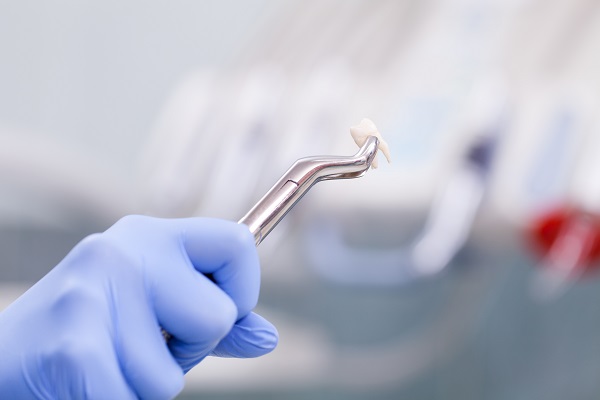How Painful Can a Tooth Extraction Be?
Preparing for an upcoming ? The main concern for patients is the potential pain that comes with the procedure. Thankfully, modern-day dentistry has allowed for new technology, which helps to keep pain at a minimum. Nonetheless, it is necessary to get familiar with what is involved in order to be appropriately prepared. Keep reading to learn more!
The pain associated with a tooth extraction
Below is a quick overview of tooth extractions and how painful the process can be. It can be helpful to review this information when preparing for the procedure.
Pain during the procedure
The thought of a tooth extraction often induces fear in patients due to the possibility that pain may be felt during the procedure. However, dentists offer pain management resources, which help reduce and even eliminate pain altogether. Numbing agents, pain medication and sedation can all be administered prior to the start of the procedure.
Numbing agents are administered in the form of a shot, whereas pain medication is usually delivered orally. Most patients will undergo nitrous oxide or laughing gas to reduce anxiety and to calm nerves. However, in some rare situations, oral sedation will be administered, which results in unconsciousness, thus putting the patient to sleep so that they feel nothing.
Dentists highly recommend each of these pain management resources in order to reduce or eliminate discomfort during a tooth extraction. However, some patients are against them due to health concerns or preferences. In the event that these resources are not utilized, patients should expect to experience a fair amount of pain since the nerves are being disconnected from the tooth itself.
Pain after the procedure
As far as pain after tooth extraction, most people experience slight discomfort for a day or so, which is completely normal. The wound will be sore and sensitive, and the surrounding areas may also feel the same way. Typically, the discomfort does not extend past two days. Outlined below are a few ways that pain can be managed afterward.
- Take an over-the-counter pain reliever, in moderation and with food
- Avoid hard or tough foods that could cause further irritation
- Use ice packs or cold compresses to reduce discomfort and inflammation
In the event that pain extends past two to three days, it is recommended to visit the dentist for follow-up care. In some rare situations, the wound from a tooth extraction can become infected, which can present itself through pain or discomfort. If an infection is present, the dentist will need to perform a cleaning and the necessary treatment to address the infection.
Find out more from a general dentist
When preparing for a tooth extraction, it can be helpful to consult with a dentist. The dentist can answer questions, address concerns and go over pain management options that may be specific to each patient. Reach out today to learn more or to get scheduled for an appointment. We are here to help!
Request an appointment here: https://hyderdentistry.com or call Shari L. Hyder, DMD at (856) 626-5047 for an appointment in our Oaklyn office.
Check out what others are saying about our dental services on Yelp: .
Related Posts
Curious about when tooth extractions are needed? Read on to learn more. Tooth extraction is when the tooth is removed completely from its socket. Tooth extraction is hardly a procedure anyone looks forward to, but the majority of the procedures are fast and painless. So do not be alarmed if your dentist starts talking about…
Simple extraction and surgical extraction are the two kinds of tooth extraction. Read on to learn more about this type of dental procedure. Simple tooth extraction is done on a tooth above the gums and does not involve splitting the tooth into sections or using surgical procedures.If a tooth has suffered damage due to an…
An emergency dentist can treat toothaches in a variety of ways if the pain becomes intolerable or the symptoms present a risk of worsening and causing other oral health issues if not treated promptly. However, for minor toothaches that can wait until a more convenient time to be scheduled, emergency dentists may provide useful tips…
In general dentistry, cracked teeth are, unfortunately, a common problem that requires attention. Thankfully, modern-day dentistry has created a few different options that can solve the problem of a cracked tooth. In most situations, a general dentist can salvage a cracked tooth; however, it is important to know that there are a few factors that…
